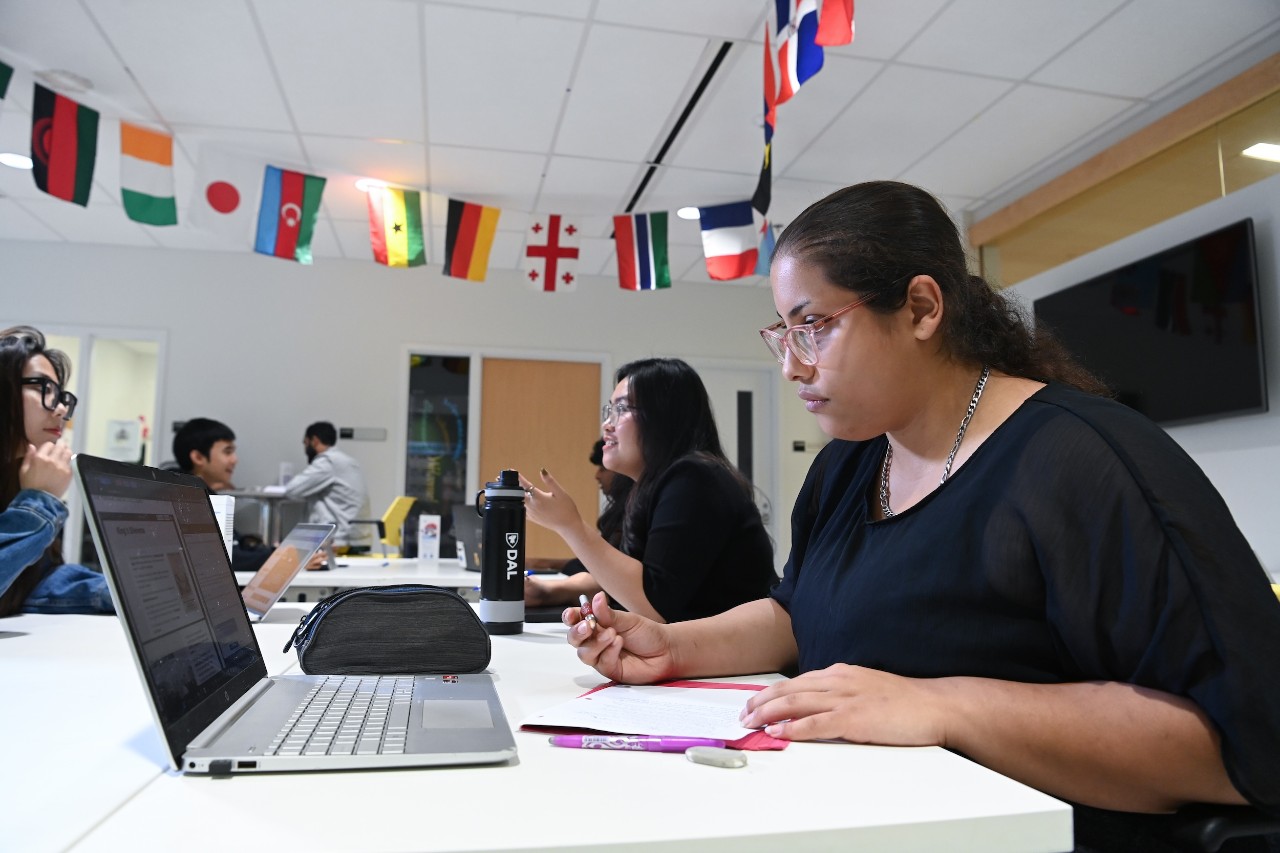When you receive your Study Permit at the Canadian port of entry, immediately check to see if it authorizes you to work in Canada (e.g. “may accept employment” or “may work”). If this information is missing, ask the Canadian Border Services agent to update your Study Permit with the necessary work authorization before you leave the Canadian Immigration area.
If your study permit does not authorize you to work on and/or off campus, and you discover this information after you leave the Canadian port of entry/Canadian Immigration, you must apply to amend your study permit.
Working while studying
IRCC does not limit the number of hours students are permitted to work on campus. However, some Dalhousie employers may restrict the hours students can work. It is generally recommended to work no more than 10–15 hours per week to avoid impacting your studies.
You can work on campus without a work permit if you meet the following requirements:
You have a valid study permit or you have applied to extend your Study Permit and have maintained status.
Your study permit states that you are authorized work on campus (e.g. “may accept employment” or “may work”). If your Study Permit does not authorize you to work, you must apply to amend your Study Permit.
- You are registered as a full-time student for immigration purposes.
- You have a valid Social Insurance Number (SIN).
For more information about working on campus, eligibility requirements, and restrictions, visit the Government of Canada’s Work on Campus page.
Many academic programs at Dalhousie include scheduled breaks (e.g. summer and winter holidays, Fall and Winter Study Breaks, and the time between academic terms). During scheduled breaks, there is no limit on the number of hours per week international students may work off campus IF:
Your academic program includes scheduled breaks (e.g no classes during summer holidays).
You were enrolled in full-time studies before the break.
You will be enrolled in full-time studies after the break.
However, international students who are enrolled in programs with no scheduled breaks (e.g. continuous study from start to completion) are limited to 24 hours per week of off-campus work for the duration of their program. The only exceptions are during Fall and Winter Study Breaks and the time between academic terms.
You can work off campus without a work permit if you meet the following requirements:
You have a valid study permit or you have applied to extend your Study Permit and have maintained status.
Your study permit states that you are authorized work off campus (e.g. “may accept employment” or “may work”). If your Study Permit does not authorize you to work, you must apply to amend your Study Permit.
- You are registered as a full-time student for immigration purposes.
- You have a valid Social Insurance Number (SIN).
For more information about working off campus, eligibility requirements, and restrictions, visit the Government of Canada’s Work Off Campus as an International Student page.
Working after graduation
International students who graduate from an eligible post-secondary program may be eligible to apply for a Post-Graduation Work Permit (PGWP). A PGWP qualifies you to stay and work in Canada for up to three years.

